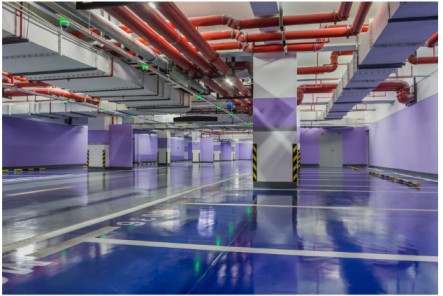Unlocking Efficiency: The World of Mechanical Puzzle Parking

In the dynamic landscape of urban development, where space is a precious commodity, innovative solutions are essential to optimize parking infrastructure.
Mechanical puzzle parking, a cutting-edge parking system, emerges as a revolutionary solution to address the challenges of limited space in urban environments.
In this comprehensive guide, we will delve into the intricacies of mechanical puzzle parking, exploring its functionality, benefits, and its role in shaping the future of parking.
1. Understanding Mechanical Puzzle Parking:
Mechanical puzzle parking, also known as puzzle car parking or puzzle lift systems, represents a paradigm shift in the traditional approach to parking.
Unlike conventional parking structures, mechanical puzzle parking utilizes a vertical and horizontal stacking system, maximizing the use of available space by stacking vehicles in a puzzle-like configuration.
2. How It Works:
The fundamental concept of mechanical puzzle parking revolves around the efficient use of vertical space.
Vehicles are parked on pallets or platforms that move vertically and horizontally within the system.
Through automated lifts and conveyors, the system rearranges and stacks vehicles in a puzzle-like manner, allowing for a higher density of parked cars within the same footprint.
3. Advantages of Mechanical Puzzle Parking:
- Space Optimization: The primary advantage of mechanical puzzle parking is its unparalleled ability to optimize space.
By utilizing both vertical and horizontal dimensions, it can accommodate more vehicles compared to traditional parking systems.
- Increased Efficiency: The automated nature of the system reduces the need for extensive parking space, streamlining the parking process and minimizing the time required for parking and retrieval.
- Enhanced Security: Mechanical puzzle parking systems often come with advanced security features, including restricted access, surveillance, and automated vehicle identification, ensuring the safety of parked vehicles.
- Environmental Impact: With a smaller physical footprint, mechanical puzzle parking contributes to reduced land usage and minimizes the environmental impact associated with constructing expansive parking structures.
4. Applications in Urban Settings:
- Commercial and Residential Buildings: Mechanical puzzle parking is well-suited for commercial and residential buildings where space constraints are prevalent.
It allows developers to maximize parking capacity without compromising on aesthetics or available space.
- Urban Redevelopment Projects: In urban areas undergoing redevelopment, mechanical puzzle parking offers a sustainable solution to accommodate the parking needs of a growing population without expanding horizontally.
- Mixed-Use Developments: The flexibility of mechanical puzzle parking systems makes them suitable for mixed-use developments, seamlessly integrating with retail, office, and residential spaces.
5. Challenges and Considerations:
While mechanical puzzle parking presents numerous benefits, there are challenges and considerations that come with its implementation.
Factors such as maintenance requirements, system reliability, and initial investment costs must be carefully evaluated to ensure the long-term success of the parking solution.
6. Future Trends and Innovations:
As technology continues to evolve, so does the landscape of mechanical puzzle parking. Innovations such as smart parking management systems, integration with electric vehicle charging infrastructure, and enhanced user interfaces are shaping the future of this parking solution.
7. Global Case Studies:
Examining successful implementations of mechanical puzzle parking around the world provides insights into its practical application and adaptability to diverse urban environments.
Case studies highlight how cities are embracing this technology to address their unique parking challenges.
8. User Experience and Accessibility:
User experience is a critical aspect of any parking solution. Mechanical puzzle parking systems prioritize accessibility and user-friendly interfaces to ensure a seamless experience for both operators and vehicle owners.
9. Sustainable Urban Planning:
In the context of sustainable urban planning, mechanical puzzle parking aligns with the principles of compact, efficient land use.
Its integration into urban development projects contributes to the creation of environmentally friendly and space-efficient urban spaces.
10. Conclusion: Shaping the Future of Parking:
Mechanical puzzle parking stands as a beacon of innovation in the realm of urban parking solutions.
With its space optimization capabilities, technological advancements, and adaptability to diverse settings, it holds the potential to revolutionize the way we approach parking in urban environments.
As cities continue to grapple with space constraints, the puzzle parking system offers a puzzle-solving approach to efficiently meet the parking needs of a rapidly evolving urban landscape.
